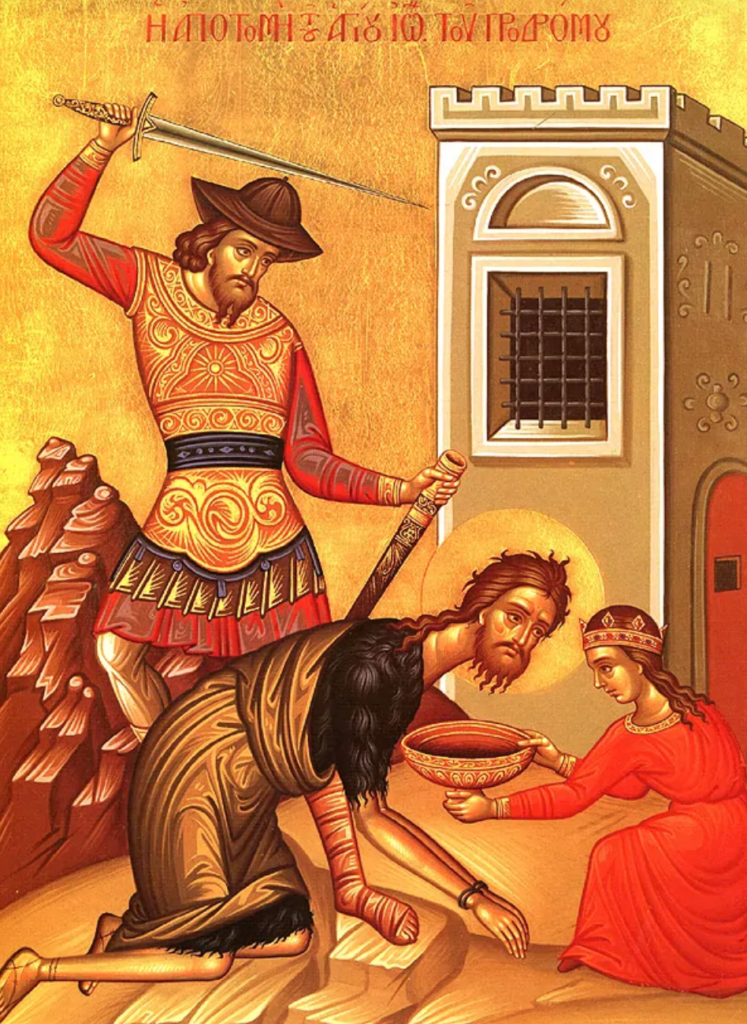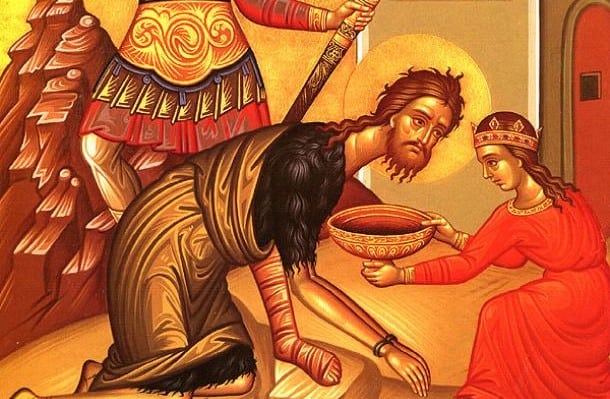On August 29, the Greek Orthodox Church commemorates the Beheading of John the Baptist

John the Baptist, was a cousin of the Blessed Virgin Mary. His message was one of repentance and preparation for the coming of the Messiah and His Kingdom.
Among his disciples were the Apostles St. Peter and St. Andrew. John baptized Jesus and recognised Him as the Messiah when he saw the Spirit come down on Him. His death was brought about by the hatred of Herodias and the weakness of Herod.
Herod Antipas, son of the elder Herod, who was the slayer of the children of Bethlehem at the time of the birth of the Lord Jesus, was ruler of Galilee at the time when John the Baptist was preaching. This Herod was married to the daughter of Aretas, an Arabian prince. But Herod, an evil sprout of an evil root, put away his lawful wife and unlawfully took unto himself Herodias as his concubine, the wife of his brother Philip, who was still living. John the Baptist stood up against this lawlessness and strongly denounced Herod who then cast John into prison.
At the time of a banquet in his court in Sebastia in Galilee Salome, the daughter of Herodias and Philip, danced before the guests. The drunken Herod was so taken by this dance that he promised Salome that he would give her whatever she asked of him, even though it be half of his kingdom. Being persuaded by her mother, Salome asked for the head of John the Baptist. Herod gave the order and John was beheaded in prison and his head brought to him on a platter. John’s disciples took the body of their teacher by night and honorably buried it and Herodias pierced the tongue of John with a needle in many places and buried the head in an unclean place. What later happened to John the Baptist’s head can be read on February 24.
However, God’s punishment quickly befell this group of evil doers. Prince Aretas, in order to cleanse his daughter’s honor, attacked Herod with his army and defeated him. The defeated Herod was sentenced by the Roman Caesar, Caligula, to exile at first to Gaul and later to Spain. As exiles, Herod and Herodias lived in poverty and humiliation until the earth opened up and swallowed them.
Salome died an evil death on the Sikaris (Sula) river. The death of St. John occurred before the Pascha (Passover) but its celebration on August 29 was established because, on that day, a church which had been built over his grave in Sebastia by Emperor Constantine and Empress Helena was consecrated. As for the body of the divine Baptist, it was taken up by his disciples and placed in a tomb. In this church the relics of John’s disciples, Eliseus and Audius, were also placed.
John the Baptist was believed to be buried in Samaria where he was honoured in the 4th century, but the tomb was desecrated by Julian the Apostate.
The death of the Prophet, Forerunner, and Baptist is remembered on 29th August, and the Greek Orthodox Church keeps a strict fast on this day.

